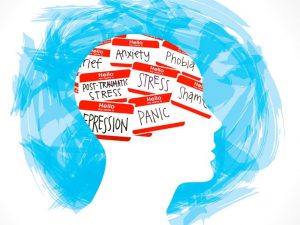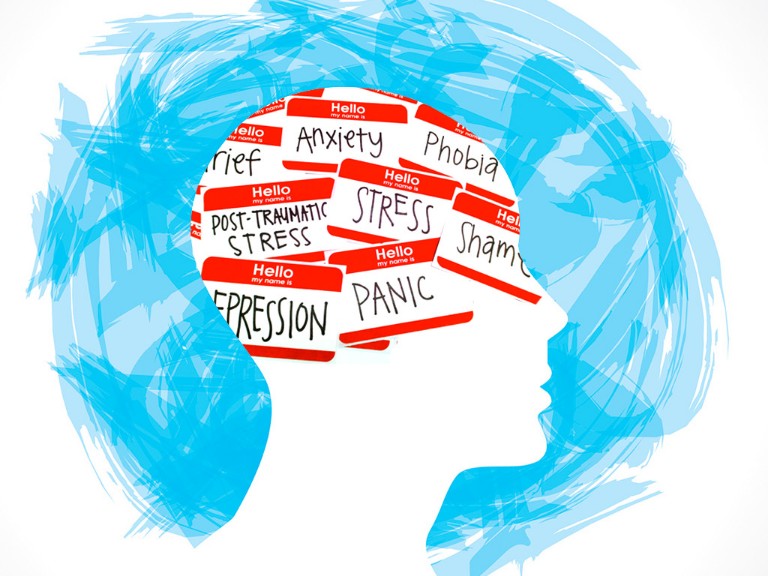
From the 18th to the 24th of May, we are celebrating Mental Health Awareness Week. This year’s theme is ‘kindness’ and, in the midst of the Covid-19 pandemic, it is more necessary than ever. As of April, 35 per cent of UK adults claimed that the coronavirus pandemic was having a ‘somewhat negative’ impact on their mental health, while eight per cent said that the impact was ‘very negative’. Clearly, Mental Health Awareness Week couldn’t have come at a more vital time.
In relation to Mental Health Awareness Week 2020, let’s talk about screen time and how it can impact your mental health during lockdown.
Even before the majority of us became confined to our homes due to the Covid-19 crisis, the ever-increasing time we spent staring at a screen was likely impacting our mental health. Now, we’re facing a crisis of opinion around our devices, which have become both our lifeline to reality and an anchor that can drag us down. Many of us are now working from home (most likely using a laptop or computer), frantically checking news apps and websites, scrolling through other peoples’ ‘lockdown lives’ on social media, and using our devices to stay in touch with family and loved ones.
If we weren’t dependant on our screens before, we certainly are now.
So, how is all this additional screen time affecting our mental health? And what can we do to manage the consumption?
Social scrolling
Social media is an undeniable a staple of modern life. Many of us already felt glued to our Instagram or Twitter feeds before lockdown began. But now, we feel ourselves reaching for our phones to have a scroll more than ever. According to one 2019 study, Instagram is the social platform that has the most detrimental effect on users’ mental health, while YouTube was found to be the most positive network.
One reason that Instagram can be particularly detrimental to people’s mental health is that many users fall into the comparison trap. It’s easy to feel like you’re ‘doing lockdown wrong’ or that ‘you’re not being productive enough’ when faced with daily posts of people upping their exercise routine and learning new skills. Here are some ways to manage your social media intake and battle the urge to constantly compare yourself to others.
1. Turn off all but essential notifications.
2. Check your ‘time spent on the app’ statistics and set yourself some time limits.
3. Fill your feed with positivity and only follow people that bring something relevant, inspiring, or informative to your day.
4. Delete any apps that you feel are draining your energy or positivity.
News anxiety
As of the 21st of April, 36 per cent of people in the UK were found to be worried about their mental health in relation to the Covid-19 crisis. Anxiety and fear are perfectly normal responses to everything the world is going through right now. Our normality has seen a complete upheaval, and whether directly or indirectly, the Covid-19 crisis is affecting us all.
Of course, it is always important to stay up to date with the news and current affairs. If nothing else, the news will give you direct instruction about the nature of lockdown and what you can and can’t do. Despite this, it is advisable to manage your news intake and stay in control of how it affects your mental health.
Here’s how:
1. Tune in to news updates roughly once a day, but don’t keep it on in the background.
2. Take control over where you get the news from — for example, watching or listening to a BBC roundup once a day is far more consistent and grounding than allowing (potentially inaccurate) news updates to drip through from your social media sites.
3. Don’t feel guilty about taking a break from the news. Yes, it’s important to know what is going on in the world, but you’re allowed a break! If you feel like the news is starting to harm your mental health, take a step back, turn off your screens and devices, and practice being in the moment.
Staying in touch
Our screen time can be used in a positive way as well as a distraction or a form of procrastination. One reason we’ve become dependent on screens recently is so that we can keep in touch with our friends and loved ones — for most, this is a necessity for good mental health. However, it’s always good to get a balance of personal time and social time, as many people now feel under pressure to make themselves accessible to others at all times.
Try these tips to gain a healthy balance:
1. Plan your Zoom/Facetime calls in advance and have a plan of who you will be talking to when throughout the week.
2. If you can, turn off your work emails after you finish for the day to retain a healthy work/life balance. You could use an app such as InboxWhenReady for this.
3. Remember: you can still say no! It may not seem like you can deny a phone call, as everyone knows you’re in your home and likely have access to your phone, but if you’re not feeling mentally up to it, the person on the other end of the Zoom chat is sure to understand.
Low-tech alternatives
As we’ve discussed, it’s important to stay in touch, and you will inevitably rack up the screen-hours while under lockdown. However, there are also many low-tech activities to keep your mind busy and healthy during lockdown.
1. Try to exercise regularly.
2. Enjoy the time available to dive into a good book.
3. Get creative with your cooking and learn some new recipes.
4. Take up a new craft or start a creative project.
5. Try your hand at yoga and meditation to settle your mind and maintain a positive attitude.
Lockdown is proving to be difficult for all, and most of us are feeling uncertain, worried, and anxious from time to time. Your screen time can contribute to this anxiety, so it is important to monitor it and find a balance that’s perfect for you. Despite this, it is of great importance that you don’t beat yourself up about your increased screen time. Everyone will find a different balance, and the only thing that matters is you finding the perfect formula for you.
This article was researched by UK print company Where The Trade Buys, currently producing PPE for UK workplaces and face visors for NHS essential workers in the fight against Covid-19.

